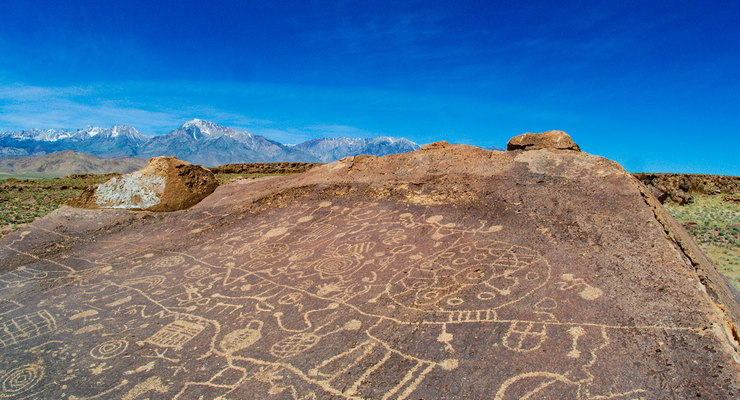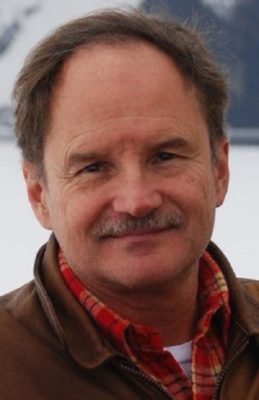
[Updated] A Caltech professor said he was wrong to initiate field research in the Volcanic Tablelands in the Sierra Nevada in 2017 and collect rock samples without explicit clearance from the Bureau of Land Management.
According to the Los Angeles Times, Joseph Kirschvink, a professor of geoscience, used a portable drill to extract core samples from rocks in the area for paleomagnetic studies, officials said.
Paleomagnetism is the study of the record of the Earth’s magnetic field in rocks, sediment, or archeological materials. Scientists use certain minerals in rocks that lock in a record of the direction and intensity of the magnetic field.
Kirschvink drilled into a rock face roughly three feet from a petroglyph — a prehistoric rock carving. Kirschvink’s work left the site riddled with holes marked with blue paint, according to the Times.
In June, the institute agreed to pay $25,000 to the Department of the Interior to cover the costs of repairing damage from the drilling.
“I recognize the error in my judgment and apologize to the local tribal groups, including members of the Bishop Paiute Tribe, for the impact of my actions,” Kirschvink said.

Kirschvink was not authorized to conduct research in the area. Caltech was later investigated for violating the Archeological Resources Protection Act.
A posted sign in the vicinity explicitly prohibits Kirschvink’s activities and bars excavating, removing, damaging, or defacing any archeological resource, according to the Times.
“From the moment I was notified and realized the violation and oversight, I have sought to make amends for my actions,” Kirschvink said. “I am committed to continuing to educate myself and to bringing awareness to others on how to conduct fieldwork in a more responsible and respectful manner. There should be clear consent of land managers and indigenous people prior to engaging in fieldwork. I hope that I can continue to make amends through my continued efforts to bring awareness to the significance of this matter.”
The area is designated to be of critical concern. Areas of Critical Environmental Concern designations highlight areas where special management attention is needed to protect important historical, cultural, and scenic values, or fish and wildlife or other natural resources.
“While the area’s geology is of significant interest, it is also of cultural and historical importance. I have always tried to conduct field research in a manner that is respectful of the land and its people. In this situation, I failed. I did not realize the damage I was causing at the time and appreciate that our efforts to assess the site for signs of petroglyphs and confirm that there were no prominent petroglyphs were not enough,” Kirschvink said.
“There is no excuse for sampling without permission, and more broadly, intruding on sacred land is wrong. I am horrified that I inadvertently collected samples from a sacred area that I too cherish and respect. I sincerely and deeply apologize for the disturbance we caused,” he said.
According to a statement by Caltech received Wednesday by Pasadena Now, the school is taking steps to avoid mishaps in the future.
“Caltech will conduct academic and educational outreach to promote fuller understanding, appreciation, and respect for the importance of clear authorization before undertaking research with the potential to affect geological or archeological resources in any way — both within our community and the broader geosciences field,” the institute said in the statement.
As an initial step, a committee, comprising faculty, students, and recent alumni has been established to review policies and procedures related to field research.
The committee will ultimately produce a set of recommendations for faculty, students, and postdoctoral scholars planning such activities in order to ensure both their work is fully permitted and that all efforts have been made to engage with local stakeholders, including indigenous peoples.
This work is in addition to broader efforts undertaken over the last year to examine all aspects of Caltech’s research and education program specific to issues of diversity, equity, and inclusion.
“Caltech is pleased to have resolved this matter, which as recognized by the U.S. Department of the Interior’s Bureau of Land Management (BLM) was inadvertent,” Caltech said. “We deeply regret the damage caused to public lands, especially in light of this area’s sacred meaning to local tribal communities.”


















